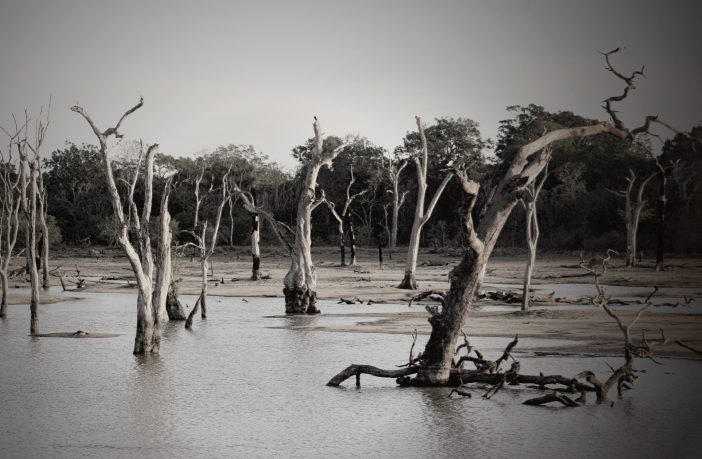- More extreme weather events and a rise of 6°C in average temperatures across the country could be possible by the end of the century.
- There is evidence that extreme weather events in South Africa are increasing, with heat wave conditions found to be more likely, dry spell durations lengthening slightly and rainfall intensity increasing.
- Climate zones across the country are already shifting, ecosystems and landscapes are being degraded, veld fires are becoming more frequent, and overused natural terrestrial and marine systems are under stress (DEA 2017a).
- According to the IPCC Fifth Assessment Report (AR5) climate will certainly increase the risk of slow-onset events such as sea level rising.
South Africa’s Minister of Environmental Affairs, Nomvula Mokonyane, has pulled no punches in her draft National Climate Change Adaptation Strategy (NCASS) released earlier this month for public inputs and comments. The National Climate Change Adaptation Strategy (NCCAS) provides a common vision of climate change adaptation and climate resilience for the country, and outlines priority areas for achieving this vision.
The report highlights five extreme weather events which will have detrimental effects of the socio economic landscape in the country:
- Temperature increases greater than 4°C forecast across South Africa.
- Increases greater than 6°C possible set for western, central and northern interior.
- Increases in the number of heat-wave days and very hot days.
- A large number of projections predict generally wetter conditions over the central and eastern interior.
- South Africa will experience drier conditions overall.
The draft report outlines interventions to help mitigate the disastrous effects of climate change. Their NCASS framework comes with a nine-step programme that aims to drastically reduce the damage caused by global warming. Read more
The NCCAS serves as South Africa’s National Adaptation Plan and fulfils South Africa’s commitment to its international obligations as outlined in the Paris Agreement under the United Nations Framework Convention on Climate Change (UNFCCC).
The NCCAS will be used as the basis for meeting South Africa’s obligations in terms of the adaptation commitments outlined in the NDC. It is a ten-year plan that will be reviewed every five years.
Author: GBA News Desk











